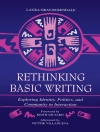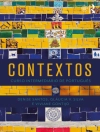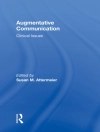Co-authored by an international team of experts across disciplines, this important book is one of the first to demonstrate the enormous benefit creative methods offer for education research.
You do not have to be an artist to be creative, and the book encourages students, researchers and practitioners to discover and consider new ways to explore the field of education. It illustrates how using creative methods, such as poetic inquiry, comics, theatre and animation, can support learning and illuminate participation and engagement. Bridging academia and practice, the book offers:
• practical advice and tips on how to use creative methods in education research;
• numerous case studies from around the world providing real-life examples of creative research methods in education practice;
• reflective discussion questions to support learning.
Inhoudsopgave
Introduction
Research Design
Context-Setting
Data Gathering Using Two Dimensional and Technological Methods – Research With Children and Young People
Data Gathering Using Three Dimensional and Online Methods – Research With Adults
Data Analysis
Writing/Reporting
Presentation
Dissemination
Where to Next With Creative Research Methods
Over de auteur
Megan Mc Pherson is a practicing artist, a Research Fellow at the Research Unit for Indigenous Arts and Cultures, and an academic at The Wilin Centre for Indigenous Arts and Cultural Development at The Victorian College of The Arts, The University of Melbourne. Her research focuses on the learning experiences of artists and the spaces these practices are enacted with agency and justice. Megan has exhibited artworks since 1988. She has published in the areas of scholarship of learning and teaching in higher education; subjectivities, agency and affect in the university studio; and social media use in academia.












